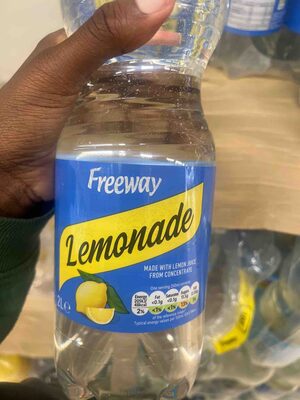
Barcode: 4056489570493
Lemonade
HALAL
📝 Reason: The product contains ingredients generally considered Halal, with the exception of Aspartame, which is marked as Doubtful due to its inclusion in the Doubtful_Ecodes_list. However, since the product does not contain any Haram ingredients and the presence of a Doubtful ingredient does not automatically render the product Haram, the overall Halal_Result is 0 (Halal). Islamic sources emphasize the importance of avoiding Haram substances and exercising caution with Doubtful ones, as per Quranic guidance and Hadith.
📄 Certificates: None
Ingredients:
Details
The Halal Status of Lemonade
Lemonade is a popular refreshing drink enjoyed by many across the world. But if you’re following a Halal diet, you may wonder, is Lemonade truly Halal? In this article, we dive deep into the Halal status of Lemonade, examining its ingredients and the reasons behind what makes it Halal.
Understanding Halal
Halal refers to what is permissible or lawful in traditional Islamic law. For a product to be deemed Halal, it must not contain any Haram (forbidden) ingredients. Thus, it’s not just about the absence of Haram components; one must also be cautious of ingredients that are considered doubtful.
Ingredients Breakdown
The Lemonade you might be considering includes several ingredients:
- Carbonated Water
- Sugar
- Lemon Juice from Concentrate
- Citric Acid
- Natural Lemon Flavouring
- Sodium Citrates
- Aspartame
- Saccharins
Ingredient Analysis
Let’s analyze these ingredients one by one:
Carbonated Water
Status: Halal
This is essentially water infused with carbon dioxide, making it bubbly. It’s generally regarded as Halal since it does not contain any animal products or harmful chemicals.
Sugar
Status: Halal
Sugar is also Halal unless derived from Haram sources. In this instance, no questionable sources are indicated, rendering it Halal as per Islamic dietary guidelines.
Lemon Juice from Concentrate
Status: Halal
Fruit juices are considered Halal by default, provided they are not contaminated with Haram substances, which doesn’t appear to be the case here.
Citric Acid (E330)
Status: Halal
This common food additive is sourced from citrus fruits and recognized as Halal according to the provided Halal E-code list.
Natural Lemon Flavouring
Status: Halal
Typically made from real lemon extracts, this flavoring is generally considered Halal unless specified otherwise. In this product, no Haram sources are indicated.
Sodium Citrates (E331)
Status: Halal
This ingredient is also on the Halal E-codes list, ensuring that it’s Halal compliant.
Aspartame (E951)
Status: Doubtful
This artificial sweetener is on the Doubtful E-codes list. Although it does not automatically make the Lemonade Haram, it warrants caution. Islamic teachings encourage avoiding doubtful matters.
Saccharins (E954)
Status: Halal
Not listed on either the Haram or Doubtful lists, Saccharins are regarded as Halal, making them a safe choice within this product.
Conclusion
In summary, Lemonade is Halal as it contains no Haram ingredients. However, the presence of Aspartame, categorized as Doubtful, suggests that consumers should exercise caution. Islamic teachings emphasize the importance of being cautious with ingredients classified as doubtful; hence, while Lemonade can be seen as Halal, individual discretion is advised.
If you prefer a more straightforward choice, ensure to look for alternative drinks that do not include ingredients like Aspartame. Always prioritize well-informed decisions for a diet that respects Halal principles.

